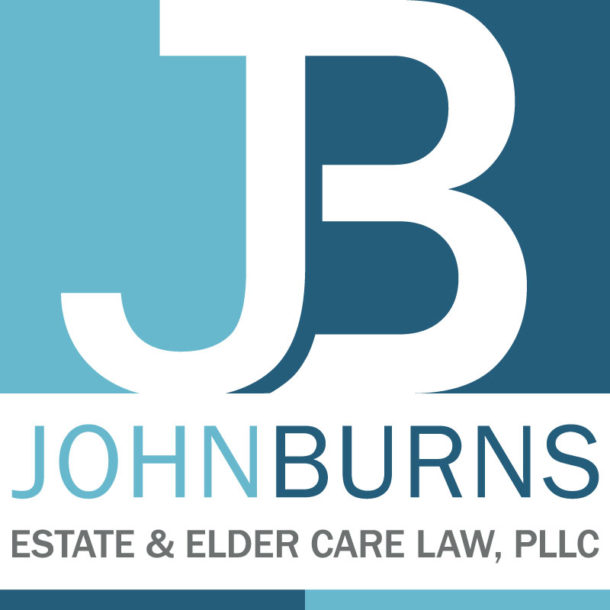Practice Areas
Probate & Estate Administration

Probate and estate administration are the processes through which estate assets are transferred after death.
Losing a loved one is one of life’s great challenges. Often, one barely has time to come to terms with a loss before being overwhelmed by the pressures of taking care of an estate. We at John Burns Estate & Elder Care Law guide clients through the probate process and remove its pressures.
Probate is the legal process that occurs after someone passes away. Typically, it involves filing a petition in the local probate court, validating the will, inventorying the decedent’s assets, paying debts and final expenses and distributing the remaining assets according to the terms of the will.
John, Mitzi, and Karen,
Thank you for your help navigating the thicket of elder care law. I will be sure to send anyone who needs help dealing with elderly parents or relatives to see you.
Donnie C.
Probate can occur regardless of whether the person has a will. If the decedent had a valid will, the person is deemed to have died “testate”, and the decedent’s assets will pass under the terms of the will. Alternatively, if the person dies without a will, the person is deemed to have died “intestate”, and state law will govern how assets are distributed.
Regardless of when death occurs, whether sudden or anticipated, at the end of a long life or a life cut short, death is a traumatic experience for the survivors. Dealing with insurance companies, government agencies and the local courts can be overwhelming. Our objective is to minimize the stress family members face by efficiently and effectively guiding them through this complex process.
Avoiding Probate
One of the most common questions that we hear is something along the lines of “Can we avoid probate?” In fact, there are pundits who advise structuring one’s assets to avoid probate at all costs. While that may be advisable in some jurisdictions with lengthy wait times to get into court and high fees once you get there, such is not the case in Mississippi, Alabama and Tennessee where we practice regularly. Nonetheless, we recognize that with proper planning, it is possible to transition assets to beneficiaries in an efficient and expeditious manner. We have found that owning assets with a right of survivorship in the case of real estate and bank accounts and having pay on death accounts and beneficiary designations on appropriate accounts are effective means to avoid probate and transfer assets “automatically” to the intended beneficiaries.
In addition, creating a trust and transferring assets to the trust is a highly effective mechanism to carry out one’s wishes without probating a will. Contrary to popular belief, trusts are not merely a tool for the wealthy, but they do require that a client have the capacity to manage assets once they are in a trust. We regularly use trusts to assist clients in all income brackets to achieve their objectives.
If Probate is Necessary
The probate procedure requires someone to be appointed to wind up the affairs of the deceased. That person is known as the “personal representative” or alternatively as the “executor” or “administrator” depending on the context. The personal representative is usually nominated by the will and confirmed by the probate court. If there is not a will, the court will appoint someone – usually a spouse or family member – to serve.
The probate process typically requires the following:
- Notification of interested parties. Most states require disclosure of the estate’s approximate value as well as the names and addresses of interested parties. These include all beneficiaries named in the will, natural heirs and creditors.
- Appointment of an executor. If you haven’t named an executor, the court will appoint one to oversee the estate’s liquidation and distribution.
- Accumulation of assets. Essentially, all assets you owned or controlled at the time of your death need to be accounted.
- Payment of claims. The type and length of notice required to establish a deadline for creditors to file their claims vary by state. If a creditor does not file its claim on time, the claim generally is barred.
- Filing of tax returns. This includes final income and estate taxes.
- Distribution of residuary estate. After the estate has paid debts and taxes, the executor can distribute the remaining assets to the beneficiaries and close the estate.
The personal representative is responsible for collecting the assets of the estate, paying the just debts of the deceased, filing tax returns for the deceased and for the estate, and managing and even selling property when necessary. After the personal representative has settled all claims, expenses and taxes, the remaining assets are distributed to the heirs. A large part of the personal representative’s job is recordkeeping to show both the court and the heirs that the estate has been properly administered. Once the court has been satisfied that the administration was proper and complete, the court will close the estate and discharge the personal representative from further duties and obligations.
At John Burns Estate & Elder Care Law, we have guided many families through the probate process. Our team has decades of estate administration experience and is prepared and capable of handling these matters at such a critical and stressful time.
Have questions? We’d love to talk to you.
Contact John Burns at (601) 748-8888 or hello@misselderlaw.com.


